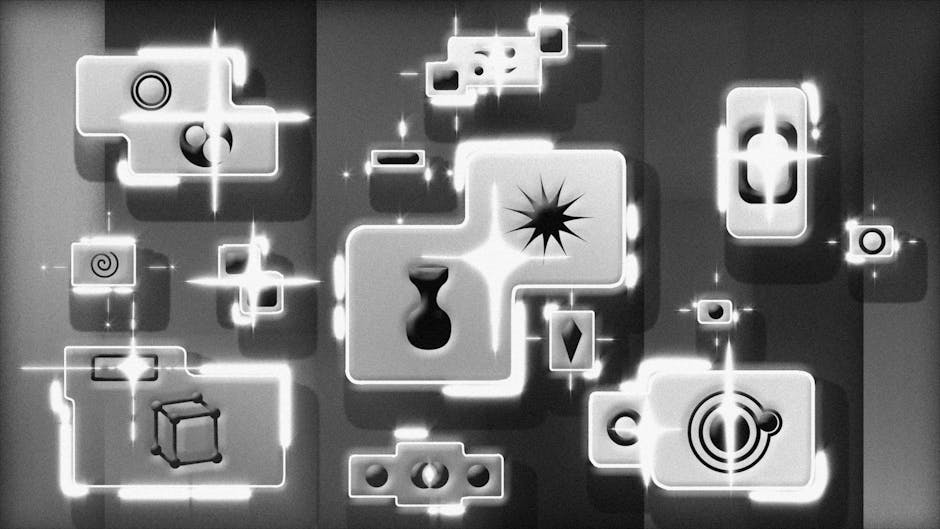How Technology Shapes Modern Society
Technology has become an inseparable part of our daily lives, influencing the way we communicate, work, learn, and even think. From the invention of the wheel to the advent of artificial intelligence, technology has continuously shaped and reshaped modern society. In this article, we delve into the intricate ways in which technology influences our world, exploring its impact on various aspects of society. Join us on this journey as we unravel the profound effects of technology on the fabric of modern civilization.
The Evolution of Communication

Communication is the cornerstone of human interaction, and technology has revolutionized the way we connect with one another. From the invention of the printing press to the rise of social media platforms, technology has enabled us to communicate faster and more efficiently than ever before. With the advent of smartphones and the internet, we can now instantaneously share information across the globe, breaking down geographical barriers and bringing people closer together.
One of the most significant advancements in communication technology is the development of social media platforms such as Facebook, Twitter, and Instagram. These platforms have transformed the way we socialize, allowing us to connect with friends, family, and even strangers in ways that were previously unimaginable. Social media has also become a powerful tool for spreading information, shaping public opinion, and mobilizing social movements.
However, the rise of social media has also raised concerns about privacy, fake news, and the impact of technology on mental health. The addictive nature of social media platforms, coupled with their ability to spread misinformation, has led to a growing debate about the ethical implications of technology in modern society.
The Digital Revolution

The digital revolution has transformed the way we work, learn, and access information. With the proliferation of computers, smartphones, and the internet, we now have unprecedented access to a wealth of knowledge and resources at our fingertips. The digital revolution has also created new opportunities for innovation and entrepreneurship, empowering individuals to pursue their passions and create new technologies that shape the world around us.
One of the most significant developments in the digital revolution is the rise of artificial intelligence (AI) and machine learning. These technologies have the potential to revolutionize industries ranging from healthcare to transportation, making processes more efficient and unlocking new possibilities for human advancement. However, the rapid advancement of AI has also raised concerns about job displacement, privacy, and the ethical implications of autonomous systems.
As we navigate the digital landscape, it is essential to consider the implications of our reliance on technology. From cybersecurity threats to the impact of automation on the workforce, the digital revolution presents both opportunities and challenges that must be carefully considered as we shape the future of society.
The Impact on Education

Technology has revolutionized the way we learn, offering new opportunities for personalized and interactive education. With the rise of online learning platforms, students can now access high-quality educational resources from anywhere in the world, breaking down traditional barriers to education and expanding access to knowledge for all. Technology has also enabled educators to tailor their teaching methods to individual learning styles, creating a more engaging and effective learning experience for students.
One of the most significant advancements in educational technology is the development of virtual and augmented reality. These technologies have the potential to transform the way we learn by creating immersive and interactive learning environments that engage students in new and exciting ways. From virtual field trips to hands-on simulations, virtual and augmented reality offer endless possibilities for enhancing the educational experience.
However, the integration of technology in education also raises questions about equity, access, and the digital divide. As we embrace new technologies in the classroom, it is essential to ensure that all students have equal opportunities to benefit from these advancements and that technology is used in a way that enhances learning outcomes for all.
The Influence on Healthcare

Technology has revolutionized the field of healthcare, offering new tools and techniques for diagnosing, treating, and preventing illness. From electronic health records to telemedicine services, technology has enabled healthcare providers to deliver more personalized and efficient care to patients. The rise of wearable devices and health tracking apps has also empowered individuals to take control of their health and make informed decisions about their well-being.
One of the most significant advancements in healthcare technology is the development of precision medicine. This approach uses genetic, environmental, and lifestyle factors to tailor medical treatments to individual patients, offering more targeted and effective care. Precision medicine has the potential to revolutionize the way we approach disease prevention and treatment, leading to better outcomes for patients and reduced healthcare costs.
However, the integration of technology in healthcare also raises concerns about data privacy, cybersecurity, and the ethical implications of using personal health information. As we embrace new technologies in healthcare, it is essential to prioritize patient confidentiality and security to ensure that the benefits of technology are realized without compromising patient trust.
The Role in Entertainment
Technology has transformed the entertainment industry, offering new ways to create, consume, and interact with media. From streaming services to virtual reality experiences, technology has revolutionized the way we engage with music, movies, games, and other forms of entertainment. The rise of social media platforms and user-generated content has also empowered individuals to create and share their own media, democratizing the creative process and expanding opportunities for artists and content creators.
One of the most significant developments in entertainment technology is the rise of streaming services such as Netflix, Spotify, and Twitch. These platforms have disrupted traditional media industries by offering on-demand access to a vast library of content, personalized recommendations, and interactive features that engage audiences in new and innovative ways. The advent of virtual reality and augmented reality has also created new opportunities for immersive storytelling and interactive experiences that blur the line between reality and fiction.
However, the integration of technology in entertainment also raises questions about copyright, content moderation, and the impact of digital piracy. As we embrace new technologies in the entertainment industry, it is essential to strike a balance between innovation and protection to ensure that artists and creators are fairly compensated for their work and that consumers have access to high-quality and diverse content.
The Future of Technology
As we look to the future, the role of technology in shaping modern society will only continue to grow. From the development of new technologies such as quantum computing and gene editing to the integration of artificial intelligence and robotics into everyday life, the possibilities for innovation and advancement are endless. However, with these opportunities come challenges that must be carefully considered as we navigate the complexities of a rapidly changing technological landscape.
One of the key questions that we must grapple with is how to ensure that technology benefits all members of society and does not exacerbate existing inequalities. From closing the digital divide to addressing bias in algorithms, it is essential to consider the social, ethical, and economic implications of new technologies to create a more inclusive and equitable future for all. By fostering a culture of responsible innovation and collaboration, we can harness the power of technology to shape a better world for generations to come.
Conclusion
Technology has become an integral part of modern society, influencing the way we communicate, work, learn, and entertain ourselves. From social media platforms to artificial intelligence, technology has reshaped the fabric of society in profound and lasting ways. As we continue to embrace new technologies and innovations, it is essential to consider the broader implications of our reliance on technology and strive to create a future that is inclusive, equitable, and sustainable.
By understanding the impact of technology on modern society and engaging in thoughtful dialogue about the opportunities and challenges that lie ahead, we can shape a world that harnesses the power of technology for the greater good. As we navigate the complexities of a rapidly changing technological landscape, let us strive to create a future that is bright, innovative, and inclusive for all.
Technology shapes modern society in ways that are both profound and nuanced, influencing every aspect of our lives from communication to entertainment, healthcare to education. By exploring the intricate ways in which technology intersects with society, we gain a deeper understanding of the challenges and opportunities that lie ahead. As we embrace the future of technology, let us do so with a sense of curiosity, responsibility, and optimism, knowing that the choices we make today will shape the world of tomorrow.




